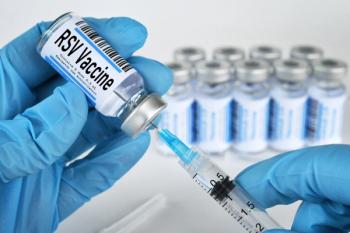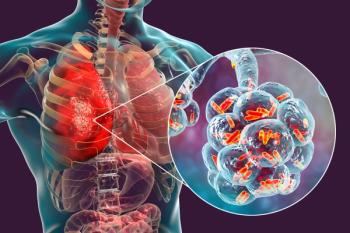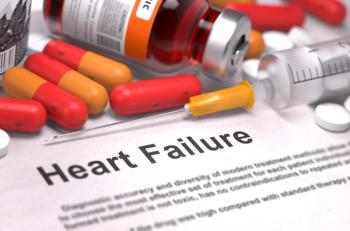
Compared with chemotherapy, nivolumab plus ipilimumab reduced the risk of disease progression or death by 79%, but further research is needed to assess overall survival.

Compared with chemotherapy, nivolumab plus ipilimumab reduced the risk of disease progression or death by 79%, but further research is needed to assess overall survival.

Older adults without a Part D plan face costs ranging from $180 to $295 per shot.

The IQVIA Global Use of Medicines report for 2024 predicts that loss of brand exclusivity will negatively impact global market growth.

Access to gene therapies can pose challenges for patients.

Protecting this vulnerable patient population requires specially designed strategies.

Hospital pharmacists can play an important role in advocating for, designing, and implementing various policies to optimize care.

The third edition of the Pharmacy Quality Alliance resource guide includes 40 total SDOH services and 8 new services, as well as 10 initiative updates from the previous 2 editions.

The treatment is for patients with KRAS G12C-mutant metastatic NSCLC who have previously received at least 1 systemic therapy and were not treated with a KRAS G12C inhibitor.

Benzodiazepines have proven effective in managing anxiety and insomnia, but they heighten risk of falls, cognitive impairment, functional decline, and mortality among older adults.

The primary point of contact, called the Technician Success and Onboarding Coordinator (TSOC), is a new role created specifically to improve pharmacy technician retention.

In 2024, there is an urgent need for policies that will accelerate biosimilar use to achieve lower system-wide health care costs.

The use of adulterated cannabinoids mixed with insecticides is becoming more common.

In general, poverty negatively impacts physical and mental health, and those in poverty have greater risks of mental illness, heart disease, hypertension, and stroke.

Individuals with PCV20-serotype disease were generally younger compared to those who had PCV13 serotype community-acquired pneumonia.

A 12-week supplement improved systolic blood pressure in this patient group more than placebo.

Kyle Farina, PharmD, BCPS, BCOP, addresses the multifaceted role of pharmacists in CLL management, including their role in patient care, treatment decision support, and addressing safety considerations.

A signaling pathway linking autophagy to nicotinamide adenine dinucleotide (NAD+), found indications that NAD+ depletion can lead to heart muscle cell dysfunction.

Previously, IgG-hyaluronidase recombinant was approved by the FDA in 2014 for the treatment of primary immunodeficiency in adult patients and has expanded to include some pediatric patients.

Although robotics can be instrumental in assuring sterility and reducing the overall number of potential hazardous drug exposure events, certain tasks require vigilant oversight.


Pharmacists are well suited to identify patients with dysphagia and educate patients and caregivers on when and how to safely crush and administer medication.

An American Heart Association scientific statement cautions individuals with known or suspected cardiovascular disease or risk factors against shoveling snow.

Pharmacists play a significant role in early identification, continuous monitoring, and interventions to help minimize the risk of falls in older adults.

In addition to the current principles and treatment regimens, there are upcoming data on myelofibrosis drugs that could be reported as early as 2024.

Not only were individuals with BMIs of 30 and higher likely to have MGUS, but those who reported heavy smoking and short sleep were also more likely to have detectable levels of MGUS.

Biermaas said her team is continuing to focus on product availability globally, as well as the massive growth in GLP-1 diabetes and weight loss treatments.

Language barriers between pharmacists and patients impacts medication adherence, patient education, and overall health outcomes, resulting in patient harm.

At a young age, hands-on learning about nutrition can promote long term appreciation of fresh food and food experiences.

BrainSee creates a new standard for progression prediction in Alzheimer disease, marking a step forward in brain health management with non-invasive screening.

The separation between those who travel for care compared to those who go to the local hospital may drive inequalities in health care.